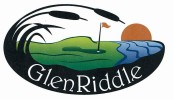VOLUNTEER AS A COMMITTEE MEMBER
The members of the Master Association’s Board of Directors believe that there’s a place for everyone to get involved in our community, whether you’re interested in leading as a board member, helping out on a committee, participating in community social events, or just getting to know your neighbors.
Taking the time to get invested in where you live allows you to put down roots, serve the community and build lasting friendships with people nearby.
If you’re not sure where to start, visit our Groups and Committees page on TownSq to find activities you can participate in with neighbors who share your interests.
If you are interested in serving on a committee, there are five committees to choose from:
- Operations and Safety Committee
- Covenants Committee
- Architectural Control Committee
- Marina Committee
- Budget and Finance Advisory Committee
These committees serve as advisors to the Master Association Board of Directors. If you are interested in serving on one or more committees, contact the management office at 410-213-1554 to indicate your interest, and someone from the committees will contact you.
VOLUNTEER FOR THE BOARD OF DIRECTORS
HOA BOARD MEMBERS MUST PRIORITIZE OWNER SATISFACTION
A Homeowner Association (HOA) is a non-profit corporation that is responsible for managing the common areas of a residential property. HOA governing documents are necessary to ensure that the HOA can operate smoothly and efficiently. Owner satisfaction is achieved when the Board routinely communicates with Owners to learn about their needs and wants and acts consistent with the governing documents to satisfy those needs and wants. As Owner needs and wants change, board members must consider modifying the governing documents to reflect these changing needs. Board members should be proactive and routinely update operating and strategic plans and the related budgets.
IF YOU PROTECT THE HOA, YOU WILL PROTECT YOURSELF
HOW TO PROTECT THE HOA
COMPLY WITH HOA’s CONTRACT WITH OWNERS: Read, understand, and follow GlenRiddle’s governing documents. These documents represent the legal contract between GlenRiddle Community Association, Inc., and all Owners. If the documents are not clear, seek clarification from the HOA’s attorney. Do not make your own interpretation of this legal contract with Owners.
MAKE INFORMED DECISIONS: Make informed decisions based on state laws related to a Board member’s Fiduciary Duties (Care, Loyalty and Representative Capacity) by following the Business Judgement Rule (Limits of Authority, Due Care, Good Faith, and Ordinary Care), maintaining Confidentiality related to outstanding legal issues, Owner account, payment, enforcement, and privacy issues as well as confidential employee information, and avoiding Conflicts of Interest between your personal interests and your board responsibilities.
DOCUMENT ALL DECISIONS: Making informed decisions is crucial to the HOA’s protection. However, if the Board cannot support those decisions with adequate documentation, then disputes with Owners will be difficult to defend. Adequate documentation should include professionally prepared board and committee meeting minutes as well as bids, contracts, emails, memorandum, research documents, video recordings, expert opinions, and any other information that may be needed if an Owner dispute arises. If board meetings are held in closed session, the board must be able to support that the meeting discussions complied with Maryland’s Open Meeting rules.
TRANSPARENTLY COMMUNICATE WITH OWNERS: Board members must avoid the temptation to withhold information from Owners for fear that Owners may not properly interpret or have an adverse reaction to the information. If the board is following the above methods to protect the HOA’s interests, then the board should be able to defend its impartial, fair, and equitable decisions. If Owners continue to object despite transparent communications, they can follow the governing documents and run for a board seat or seek to remove one or more directors.
HOW TO PROTECT YOURSELF
PROTECT THE HOA: If you follow the guidance on how to protect the HOA, you will also protect yourself in your role as a volunteer non-profit corporation board member.
UNDERSTAND THE LIMITS OF LIABILITY INSURANCE: If you protect the HOA but still become subject to an Owner dispute, then your protection will come from the HOA’s D&O Insurance policy. D&O Insurance is liability insurance payable to the directors and officers of an association or to the association itself. The D&O policy advances legal defense costs and reimburses the HOA for losses because of a legal action brought for alleged wrongful acts while serving as a board member or an officer of the corporation. This protection typically does not cover intentional illegal acts or illegal profits or “wrongful acts” unless these wrongful acts are defined under the D&O policy. Typical defined wrongful acts include named acts, omissions, and misstatements while acting for the HOA. There is also no coverage for criminal fraud.



Post your comment on this topic.